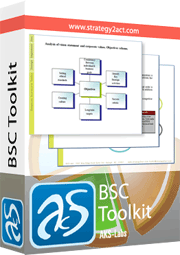 This weekend, after reading a fascinating article focusing on the findings of a leaked report that has been investigating Crossrail’s potential health & safety issues over the last year, yet again I was reminded that safety management is a process issue.
This weekend, after reading a fascinating article focusing on the findings of a leaked report that has been investigating Crossrail’s potential health & safety issues over the last year, yet again I was reminded that safety management is a process issue.
Crossrail is Europe’s largest construction contract, costing £15bn over several years. The tunnelling part of the work is nearly complete, many kilometres of mainline railway tunnels and shafts excavated with extraordinary precision under London. While regular reports show the project to be on time and on cost, there is some debate as to how it is being run.
We know that people —leaders and operators alike—do not want to make mistakes or generate stress and fear in managing for safety. But how they are recruited, trained, informed and engaged are all key factors in safe operations.
Of course, time alone will tell how close the report is to reality, and what changes it will stimulate but it does demonstrate that there is a lot to be learnt from the lessons of sixty years in transforming processes to improve product and service quality and effectiveness – and safety.
Process-based management is essential, for safety performance is an outcome of how the work, works. In turn, that is a consequence of the systems and processes that have been developed, and how they are operated, monitored and responded to. In other words, safety is as much a consequence of the work as is product or service quality, and subject to exactly the same principles methodologies and tools.
What happens when no-one is on hand to observe the operations?
A very old question conundrum is; “If a tree falls in the forest and no-one is there, does it make a noise?” The answer depends on a lot of assumptions but for our purposes the truth is that the great majority of work is carried out without a manager or supervisor being able to observe it. No amount of technology or inspection can take away from that truth, we have to trust the operator.
All work, whether operating a £200m tunnelling machine or responding to a problem from a mobile phone customer, is a process—a sequence of tasks hopefully adding value on behalf of a customer.
Effective, reliable and safe work demands that the process is capable, the operator is trained and competent, and that the surrounding support processes enable consistency and success.
It is pertinent to be reminded of Dr W Edwards Deming’s System of Profound Knowledge, developed in the 1980s after 60 years of practise in organisational transformation. It has four components, of which this is a very short summary;
- What is the system, what is its purpose, who are the customers, suppliers, what is the flow of the work?
- How does the work vary, how much waste is there? Do people know the difference between an abnormality and a problem, and the different management responses they demand?
- How do people learn, do they share theories and test them robustly.
- What do people thinking about their goals, rewards, communication, decision-making authority—amongst many personal factors.
Illuminating the challenge of safety in major projects:
- Systems Thinking. The overall project is probably well defined, but what about the many enabling systems—for recruitment, training, time allocation, materials supply etc. etc.Who is the customer?For instance, in the safety arena, the customer is the worker, not the client. Is everyone clear on what these systems are trying to accomplish, and do they know how to recognise if a change is improvement?
- Theories of variation. Is variation in all the key factors monitored and intelligently responded to? This would mean that the everyday ups and downs, comings and goings, are kept track of by people at the workplace (trees falling in the forest being noticed). Or is it the case that only such events that cause a “problem” get investigated? Are we searching for someone or something to blame? This leads to covering up, and to “fixing” preventions when something is found. The result is a succession of fixes imposed one on another, eventually collapsing either in confusion, or literally as an accident.
- Theory of knowledge. Is data collected to inform those close to the work, to see if processes are running consistently?It should be displayed openly and where that work is taking place. Managers should visit the location to review it with their people, taking time to get the sense of routine or common cause variation, and to recognise special causes when they appear – as they will.This approach regards all work as a learning opportunity. Applying the scientific method to generate continual improvement while it cannot watch all the proverbial trees when they fall, it can give assurance that the data is representative enough to be useful.
- Psychology. Are people at the workface clear about their job, confident they have the skills, materials and services to do it? Do they feel listened to when they raise concerns? Are they able to make decisions in the interest of safety without fear of accusations of causing delay?
These are just a few of the questions that need to be asked.
The key value identified by Dr Deming, validated by our practise over the last 30 years, is that all need to be considered, and we need to understand their interactions. Trust is needed if data is to be collected accurately and the purpose of the system must be coherent and understood by the people in the system if it is to be operated constructively.
In conclusion
Everywhere we look we find that work is indeed a process. Leadership is always important, honesty and trust are essential to effectiveness, but “by what method?” is at least as important as “who?” and process management offers the principles, methods and tools to continually transform the work, to the benefit of customers and workers alike.











0 comments:
Post a Comment